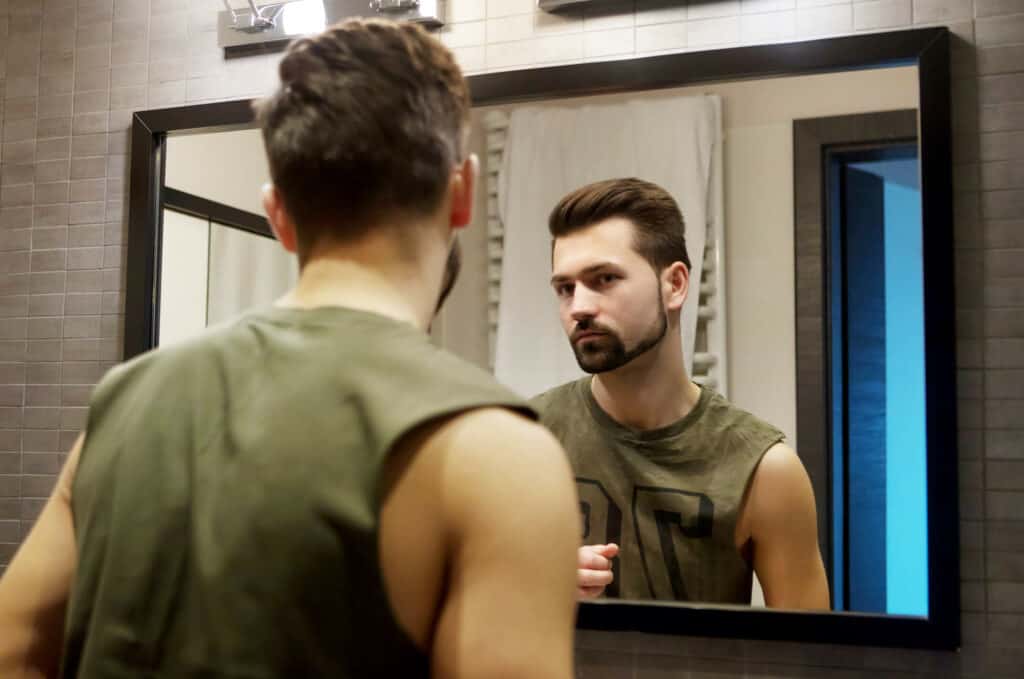Do you look in the mirror and hate how you look? I’m too fat. Too ugly. Too tall or too short. You hate the colour of your hair. These can be some of the thoughts that may run through your head. Or do you feel grateful? Acceptance and contentment in what you see? Body image is something many people struggle with.
No matter how often we hear “it is what is on the inside that counts”, people judge us based on our external appearance. But when you look in the mirror you can feel defeated if you have a poor body image. Self-doubt creeps in and you question how you look compared to the so-called beautiful people on social media and in the movies.
So many people wish they looked differently in some way and it often stems from a lack of self-esteem. And changing it all starts in the perception of yourself. Not in the mirror.
Does a person’s body image affect mental health? Yes. It can when you have a poor body image. It puts you at risk of mental health challenges and low self-esteem. How you see your body is both emotional and mental. It is how you mentally picture yourself and how you feel when you look in the mirror.
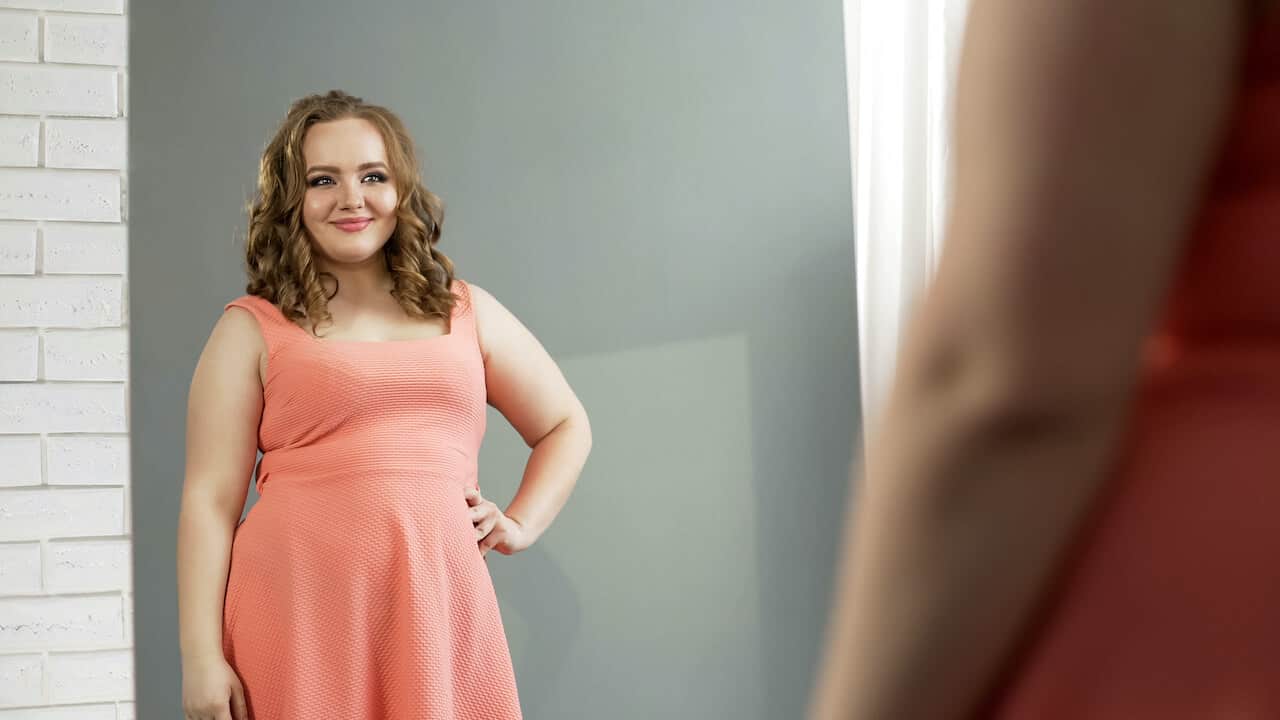
What is body image?
Your body is not just what you think and feel when you look in a mirror or the mental picture you have of yourself. It is also about how you behave driven by how you think and feel. Just know that body image is not always about your size or weight.
A poor body image is not a mental health issue but it is a risk factor. And according to research, people with negative body image issues had a poorer quality of life. They were at risk of eating and behavioural disorders and became more psychologically distressed.
People with a good body image tend to be less at risk of unhealthy eating and healthier overall. And generally happier overall.
Positive body image and self-esteem
A positive body image is not simply putting up with how you look. It is about truly accepting how you look in the moment. Recognise the qualities and strengths that make you feel good about yourself. Avoid situations that make you not want to change your appearance. Try not to allow the pressure to fit the social ideal influence how you see yourself.
Self-esteem is the respect you have for yourself. How you see yourself inside and out. It impacts how you look after your physical, emotional and spiritual health. Good self-esteem means that you know your worth and have respect — for yourself and others. You understand your strengths and weaknesses. And you acknowledge mistakes as lessons. Good self-esteem means you know you are good enough even when you face tough challenges.
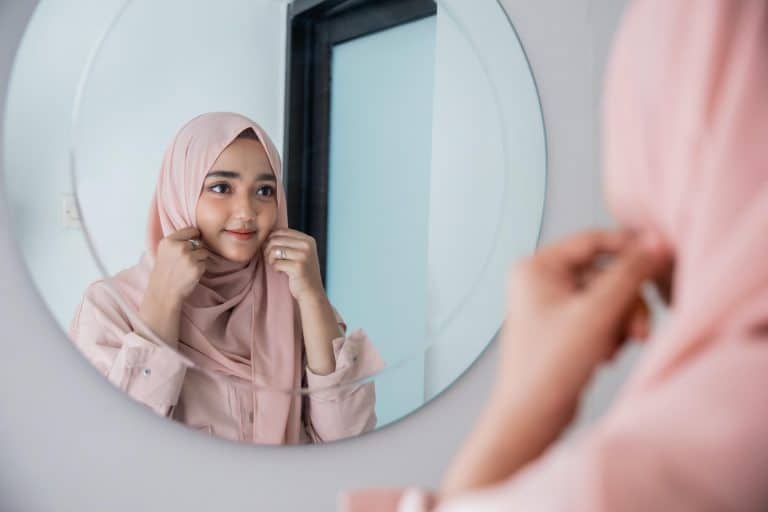
What influences your body image?
Your experiences in life and environment influences your body image. Things such as:
- How friends and family talk about the body and the way people look.
- Cultural differences surrounding the body.
- Exposure to unrealistic or idealised pictures on social media and in the media.
- Relationships with your family and friends.
- Being bullied or teased for your weight as a child.
- Long-term health challenges.
- Social pressure to have the ideal body or to look a certain way.
- Gender and sexuality.
- Constant criticism of how you look.
- Being overweight, underweight or obese.
All these can link to discrimination and social expectations. In rare cases it can lead to having such a distorted view of your body that you search for the tiniest or imaginary flaws. This s a mental health condition known as body dysmorphic disorder.
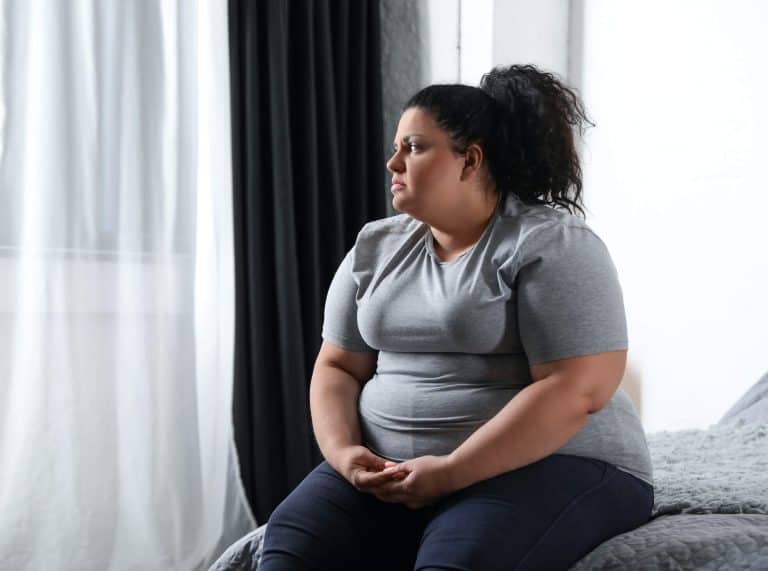
Self-esteem and body image – Why it matters
Self-esteem and body image is intrinsically linked with each other and how you think, feel and behave. If you do not like the way you look, it is difficult to like yourself as a whole. When you do not value or respect yourself, you will not see the good things about your body.
Effects of a positive body image on mental health
Having a good body image has a positive impact on your mental health. Self-esteem and a good body image is about respecting yourself and the others that cross your path. It is about your ability to take action to deal with challenging situations in a healthy way. Being comfortable with how you look is having realistic expectations. And valuing achievements and personality above looks.
Effects of a negative body image on mental health
A poor body image can lead to negative thinking and emotions which compounds into more negativity. It can end up being a circular cycle that is hard to break. When you focus on your own shortcomings or other problems, it becomes easy to see only negativity. And can lead to low self-esteem and other mental health problems such as eating disorders or depression.

Improving your body image
There is no one-size fits all solution to improving your body image. Simply turning negative thoughts about your body positive is not that easy. But there are a range of simple things you can do to help change how you see and think about yourself:
- Eat a healthy diet. Eat a healthy diet. Ditch the junk and processed foods. Feed your body the nutrients it needs to sustain it. Eat a balanced diet and get the exercise you need. It will make you feel strong and in control.
- Write a list. Write a list of at least 10 things you like about yourself. It should be unrelated to how you look and to your weight. Keep this list on hand to read often. Keep it in your phone. It will remind you of all the positive things about yourself. Add to the list as more things come to light.
- Positive people. Surround yourself with positive people. It is much easier to be positive when others have a positive outlook and support you. Positivity tends to be infectious.
- Mindful meditation. Practice mindful meditation to keep you in the present. And to clear out negative thought cycles. It only takes 5 or 10 minutes. Take a seat. Close your eyes and start slow breathing. You can even use a positive affirmation such as “I love and accept my body just as it is right now” to meditate on.
- Notice how you judge yourself. Notice when you judge yourself and others based on weight and appearance. Consciously recognise your thoughts. Instead admire the beauty in others. Substitute those negative thoughts for positive qualities instead.
- How you talk about yourself. Take notice of how you talk about your physical self with family and friends. Do you often focus on how you and others look? Are you always seeking reassurance about your appearance to feel good about yourself? Next time you notice those negative thoughts, stop for a second. Think about what else is going on in your life. Are you feeling stressed or down? Are there challenges in some other part of your life? When you have negative thoughts, consider what advice you would give a friend and the take it yourself.
- Positive messages. Leave short, positive messages around your home. Tape them to mirrors. Leave them in drawers to remind you to turn negative thoughts into positive ones.
- Discover a purpose. When you have a purpose, you do not have time to worry about your appearance. There are more important things to do. Let’s face it. It is way more satisfying growing fantastic fresh produce, doing something creative or being a passionate parent than worrying about looking good all the time.
Changing a poor body image takes time so it becomes a habit. Get into the habit of showing your body the respect it deserves.
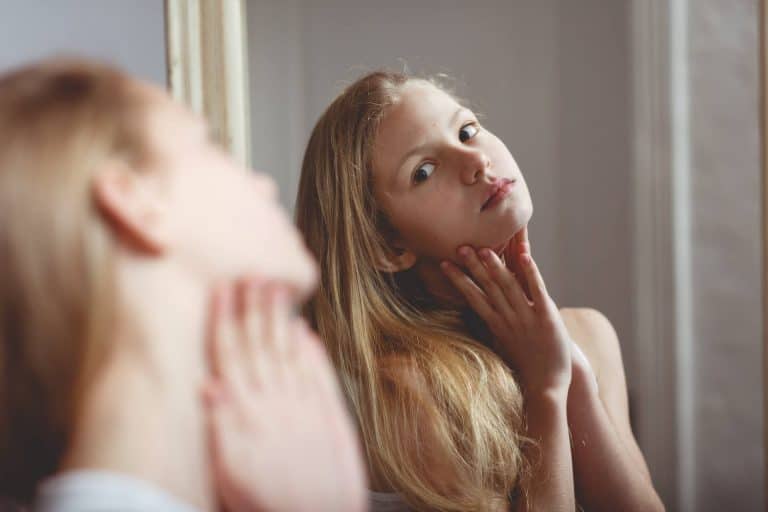
Body image and your teen
Your body image may influence how your children look at themselves. How you see yourself can either have a positive or negative on your kids according to research. Think about the language you use when you talk about your body. Instead of saying “I’m fat and need to lose weight” consider changing it to “I need to eat better and get fitter”. Cook healthy meals together. Even start a vegetable garden to grow some of the food you eat. Exercise together by doing more physical activity. Teach the kids about making smart food choices. This will help them develop good exercise and eating habits as they hit their teens.
Subconsciously you may be teaching your children bad habits when you are often:
- Starting new diets.
- Warning the kids they will be more attractive if they weighed less.
- Complaining about how you look and your weight.
- Telling them not wear certain clothes because it makes them look fat.
Instead, help your kids to develop a healthy body image. You can do this by:
- Limiting how much time your children spend in front of a screen. Apart from the unrealistic male and female bodies portrayed, they are not getting much exercise.
- Giving children compliments for their achievements, talents and personal beliefs.
- Avoiding negative comments about anyone’s body shape and size, food and weight, including you and your family.
- Giving the kids the freedom to make food choices while making sure there are healthy snacks and meals available.
- Letting them know there are times, like puberty, where weight gain is a normal part of growing up.
- Letting your children know you are always there to listen.
We are here to help
Your body image is important, especially for your self-esteem. So if you think about and see yourself in a negative light, it may affect your mental health. Or you may have a child struggling with their body image. It is difficult to deal with particularly if there is an eating disorder involved. Turning your negative thoughts around and building self-esteem takes consistent persistence. When you are constantly negative about your appearance, seek help. You do not have to go through it alone. The sooner you get help, the sooner things will improve.
If you are struggling, consider reaching out to our professionals. When you are not coping, contact us to discover how we aim to help get your life back on track. But if you reach a crisis point, call us immediately. We are here to help support you. We may help you deal with things quickly.
We can work with you over the phone, via Skype or in our Spas. Book in today for my Emotional Empowerment Program. I have an introductory offer for just $79 so you may start taking back control of your life. We aim to help you cope with any mental health challenges. Our facilitators may alleviate the effects of depression and anxiety so you have more self-esteem and start to feel happy again.
Let me help alleviate the effects of mental health issues
My Emotional Empowerment Program has helped many people like you for more than a decade. My aim is to help you replace anxiety, stress and depression with a new hope for the future. A future filled with happiness, peace and contentment in weeks not years. Listen to what Taylor has to say about my program after only a few sessions.

Give the Blissiree ™ a try by booking a free 25-minute telehealth consultation. Or discover a seamless way to rejuvenate your emotional and mental health by becoming a member. It will give you access to more than 75 audio programs that can help your child and you to live inspired and improve mental wellbeing.

